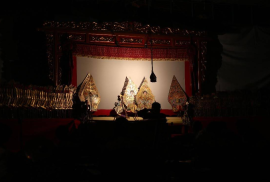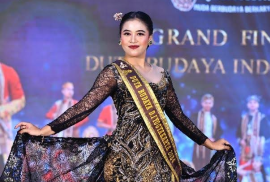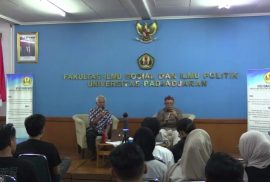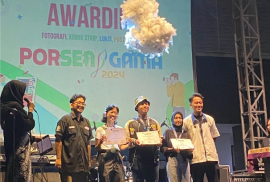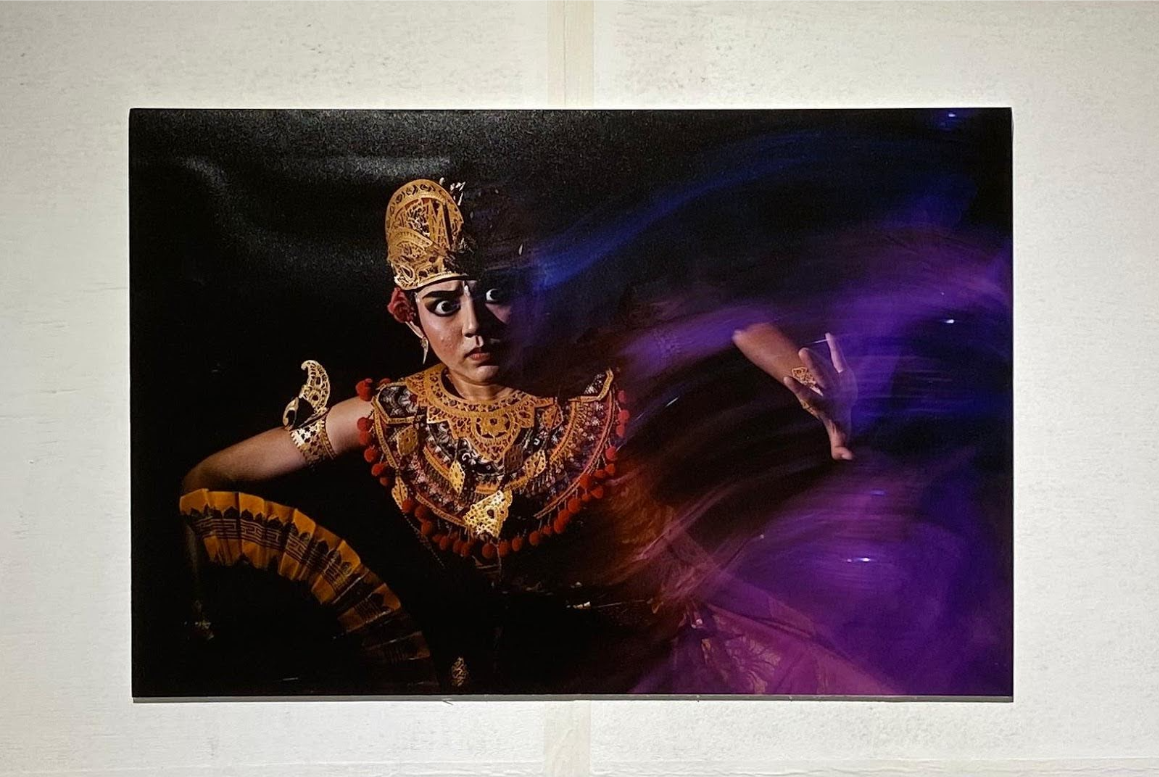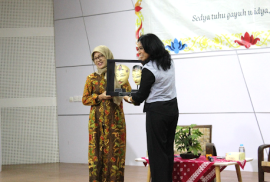Thursday night (14/12/2024), the Javanese Language, Literature and Culture Study Program held a puppet show with the play Gajahmada Kridha (Ra Kuti Balela). The night was also the night of the awarding to the winners of the Temu Budaya Nusantara XXX competition, this puppet show was also held in commemoration of World Shadow Puppet Day. The puppet performance was held in Greenland, Faculty of Cultural Sciences, Gadjah Mada University. Masterminded by M. Rafi Nur Fauzy, a 2023 student of the Javanese Language, Literature and Culture Study Program and in collaboration with the Surakarta Style Javanese Arts Unit (UKJGS) UGM, the Gajahmada Kridha puppet show went smoothly.
Based on an interview with Rafi, Gadjahmada Kridha (Ra Kuti Balela) tells the story of Gajah Mada’s role in suppressing the rebellion of Ra Kuti, a Dharmaputra or courtier at that time. Ra Kuti’s rebellion was based on dissatisfaction with King Jayanegara who was very weak and easily manipulated by his subordinates. This made some of his courtiers unhappy, including Ra Kuti. Ra Kuti wanted to restore the dignity of Majapahit at that time. However, it turned out that Ra Kuti’s idea was not approved by the community so that the community considered that Ra Kuti was committing a rebellion. When Ra Kuti successfully occupied the capital, Jayanegara was escaped by Bhayangkara’s troops. After strategizing, the Bhayangkara troops were able to turn the situation around and Ra Kuti died at the hands of Gajah Mada.
The rebellion carried out by Ra Kuti changed an Gajah Mada who was initially only a commander of soldiers then appointed as patih. The beginning of Ra Kuti’s rebellion as Dharmaputra was caused by a divide and conquer, by Mahapati, a cunning person. He made a strategy so that all Majapahit predecessors were finished and Mahapati could steer the country, even though he did not want the position of king. Gajahmada, who knew Mahapati’s guise, succeeded in making Mahapati die at the hands of Gajah Mada.

Puppet performance of Gajahmada Kridha (Ra Kuti Balela)
There were many processes involved in writing the script for this puppet show. With the help of R. Bima Slamet Raharja, S.S., M.A., and Dr. Rudy Wiratama, S.I.P., M.A., as academics and wayang practitioners, Rafi revealed “Initially I read Negara Kertagama but there was no explicit role of Gajah Mada in it. Then in consultation with Mr. Bima and Mr. Rudy, I was advised to read comics, tutur tinular, and Pararaton.” Being able to perform his own hand-drawn sanggit is a proud and enjoyable thing for Rafi. However, unfortunately there is a lack of appreciation from the Faculty of Cultural Sciences regarding this puppet performance. It is a good first step for the Javanese Language, Literature and Culture Study Program to organize a puppet show at the Faculty of Cultural Sciences, especially to introduce students and residents of Universitas Gadjah Mada to puppetry.
It is hoped that with this wayang performance, more and more students and the general public will be interested in puppetry, because basically puppets in this globalization era are more flexible, not fixated on puppetry conventions. It does not require classical wayang, but it can also be contemporary according to each taste. For the younger generation to be able to love wayang from what they find interesting, it can be from the music accompaniment, the story, and the characters. There are many life lessons that can be learned from puppetry, which can be used for later life.
[Public Relation Faculty of Cultural Science UGM, Editor: Sandya Kirani]

